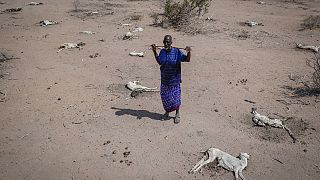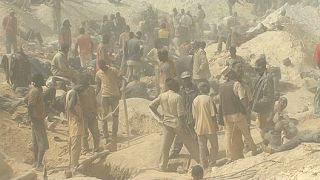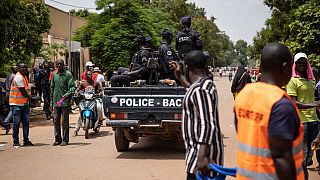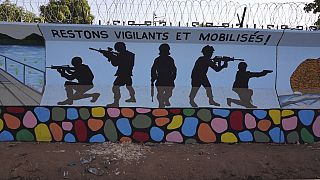Burkina Faso
The Sahel region is experiencing its worst drought in over a decade, plunging more than 10.5 million people into malnutrition. For Burkina Faso, the situation is particularly worrying as the country suffers the consequences of the conflict, which is exacerbating the ongoing food crisis.
Some families have now taken refuge far from their usual homes, abandoning their farms.
They have been forced to use the available arable land in these new areas which are now facing severe droughts.
"We came here because the armed groups chased us out of our village. It is a good person who allows me to farm this piece of land. But because of the lack of rain, the harvests are bad. Our fields in the village are more fertile than those here. There are pockets of drought here. The rains don't come all the way. The sorghum I planted did not survive and I had to plant cowpeas instead, without success," said Larba Mathieu Yougbare, a farmer and internally displaced person.
The situation remains the same in the health sector. The major culprits are the children and lactating mothers and expectant women. Lack of sufficient food has led to malnutrition, especially among children. The number of those affected has risen exponentially within a short span.
"We were expecting 221 cases of malnutrition in our health facility for the whole year. Today, in the space of three months, we have already reached 211 cases of malnutrition," revealed Harouna Sawadogo, the head nurse of the dispensary of Fada N'Gourma.
"The real problem today is a series of failures in other systems that have unfortunately led to a food crisis: for example, no action or very little action on adapting to climate change, so climate funding that unfortunately does not reach the places that have to cope, such as Somalia, Mali or the Sahel countries, with climatic hazards, drought, and the advance of the desert, and which, unfortunately, find no solution," said Patrick Youssef, ICRC regional director for Africa.
According to the International Committee of the Red Cross (ICRC), the violence has resulted in the internal displacement of more than 1.8 million people, or nearly 10% of the country's population. With 80% of the population dependent on agriculture for their livelihoods, the displaced immediately become more vulnerable, depending on aid to survive













Go to video
84% of world's coral reefs affected by worst coral bleaching event in history
01:40
‘The Herds’ puppets highlight climate change in Lagos
Go to video
South African orphanage rehabilitates injured predator birds
01:37
Indigenous and climate activists rally in Brasília ahead of COP30
Go to video
Heavy rains flood Congo's capital, killing at least 22 people
01:54
Uganda: the infiltration of plastics into agricultural fields and food raise concern